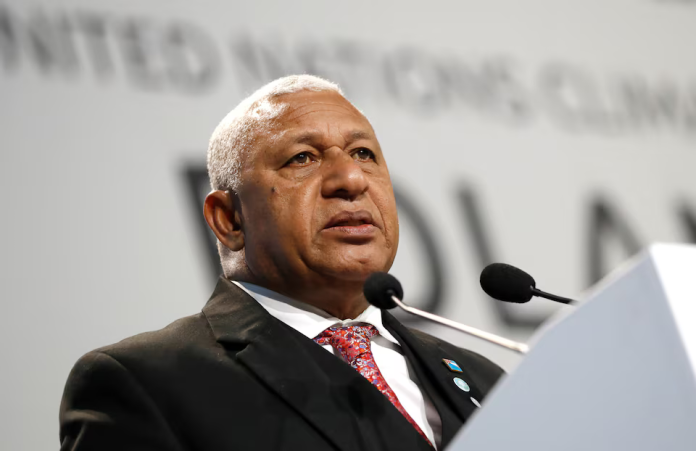Fiji’s former long-serving prime minister, Frank Bainimarama, found himself at the center of a legal saga that culminated in his discharge by the Magistrates Court on Thursday, sparing him from incarceration. This decision followed a recent guilty verdict by a higher court for perverting the course of justice.
Bainimarama, a prominent figure in Fiji’s political landscape, held the reins of power for 16 years until his narrow defeat in the December 2022 elections to a coalition led by current Prime Minister Sitiveni Rabuka. Rising to prominence through a 2006 coup, Bainimarama later transitioned to winning democratic mandates in 2014 and 2018.
However, his legal woes surfaced when the High Court found him guilty of attempting to obstruct justice during his tenure as prime minister. The court ruled that Bainimarama had instructed the then police commissioner, Sitiveni Qiliho, to abstain from an investigation into the University of South Pacific.
Initially acquitted by magistrate Seini Paumau last year, the case took a turn when the High Court overturned the verdict, leading to Bainimarama’s sentencing in the Magistrates Court. Notably, the court cited Bainimarama’s health concerns, including a heart condition, as grounds for an absolute discharge.
Nevertheless, Fiji’s Acting Director of Public Prosecutions, John Rabuku, swiftly filed an appeal against the lenient sentence, deeming it a departure from legal standards. The appeal contends that Bainimarama’s sentence was unduly light and erroneous in its application of the law.
In a surprising move, the Magistrates Court opted not to register Bainimarama’s conviction, further complicating the legal landscape surrounding the case. Despite the legal turmoil, Bainimarama maintained a stoic demeanor, extending Easter greetings to his supporters gathered outside the court premises.
As the legal proceedings unfold, questions linger over the implications of Bainimarama’s discharge and the potential ramifications for Fiji’s political future. The case underscores the delicate balance between justice, political influence, and public perception in the Pacific island nation.
Observers keenly await Bainimarama’s response to the latest developments, as his silence adds an air of mystery to the unfolding legal drama. The outcome of the appeal will undoubtedly shape the trajectory of Fiji’s legal system and its broader implications for governance and accountability.























